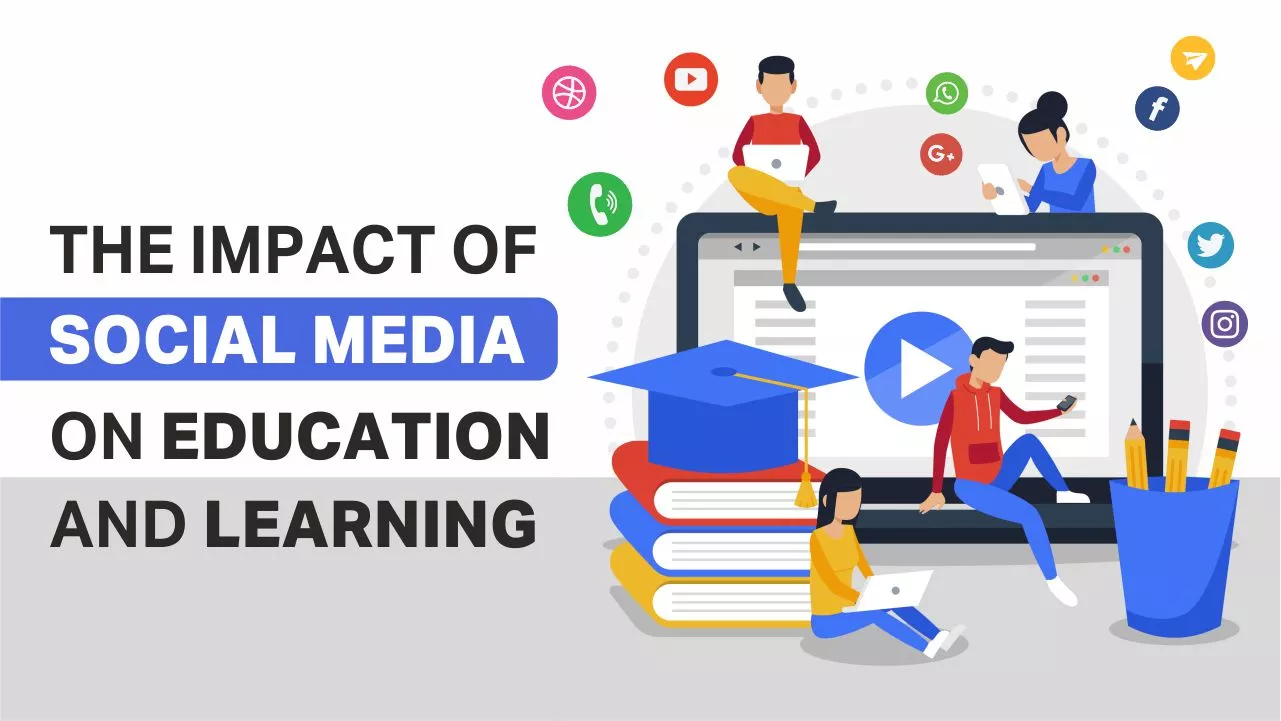
The Impact of Social Media on Education and Learning
The use of social media platforms has permeated almost every aspect of our lives with billions of users worldwide. Everybody spends too much time scrolling through their feeds, whether it’s Facebook, Instagram, or TikTok.
We also communicate with one another differently now thanks to social media, from sharing photos from our vacation to sharing our thoughts. The impact of social media on students is both positive and negative. The purpose of this post is to examine the effects of social media on students.
By understanding the potential consequences, we can navigate the digital landscape responsibly and maximize the benefits while mitigating the risks.
The Negative Impact of Social Media on Students
1.1. Mental Health Challenges: Social media can contribute to increased feelings of anxiety, depression, and loneliness among students. The constant exposure to carefully curated, idealized online personas can lead to unhealthy social comparisons and a diminished sense of self-worth.
1.2. Cyberbullying and Online Harassment: Social media platforms provide a platform for cyberbullying. It could have severe psychological and emotional consequences for students. The anonymity and wide reach of social media can amplify the impact of bullying and make it difficult for victims to escape.
1.3. Distraction and Reduced Productivity: Spending excessive time on social media can lead to decreased focus, attention, and academic performance. The constant stream of notifications, updates, and addictive content interferes with students’ ability to concentrate. As a result, it becomes hard for students to complete their tasks effectively.
1.4. Sleep Disruption: The use of social media, particularly before bed, could disrupt students’ sleep patterns. The blue light emitted by screens and the engagement with stimulating content negatively impacts the quality and duration of sleep. It leads to fatigue and decreased cognitive functioning.
The Positive Impact of Social Media on Students
2.1. Access to Information and Educational Resources: Social media platforms provide students with a wealth of educational content. It enables them to access information, news, and resources relevant to their studies. Online communities and forums can foster collaborative learning and knowledge sharing.
2.2. Enhanced Communication and Networking: Social media platforms facilitate communication and networking among students. It allows them to connect with peers, mentors, and experts from around the world. This could lead to valuable collaborations, mentorship opportunities, and the exchange of diverse perspectives.
2.3. Expression of Creativity and Talent: Social media provides a platform for students to showcase their creative work. The ability to receive feedback and recognition from a global audience boosts confidence and encourages the pursuit of creative endeavours.
2.4. Awareness and Activism: Social media has played a pivotal role in raising awareness about important social issues and mobilizing students for activism. It enables them to share their voices, support causes they believe in, and initiates positive change within their communities.
Navigating the Impact of Social Media on Students
To navigate the impact of social media effectively, students must develop digital literacy and responsible online behaviour. Educators, parents, and schools play a crucial role in guiding students on safe and mindful social media usage.
Strategies such as setting boundaries, practicing digital detox, and promoting open conversations. It helps students maintain a healthy relationship with social media. Media literacy programs and awareness campaigns equip students with the skills needed to critically evaluate and interpret online content.
Conclusion
Social media platforms have become an undeniable force in the lives of students. It’s shaping their experiences and interactions in profound ways. While it presents both benefits and challenges, it is essential to foster responsible and mindful social media usage among students.
By understanding the negative impact, leveraging the positive aspects, and adopting strategies to navigate the digital landscape. However, students can harness the potential of social media while safeguarding their well-being.
Finally, empowering students as informed and responsible digital citizens will enable them to maximize the benefits of social media while minimizing its potential drawbacks.
Also Read: NARRATIVES AND MEDIA ON PANDEMIC
Recent Post
